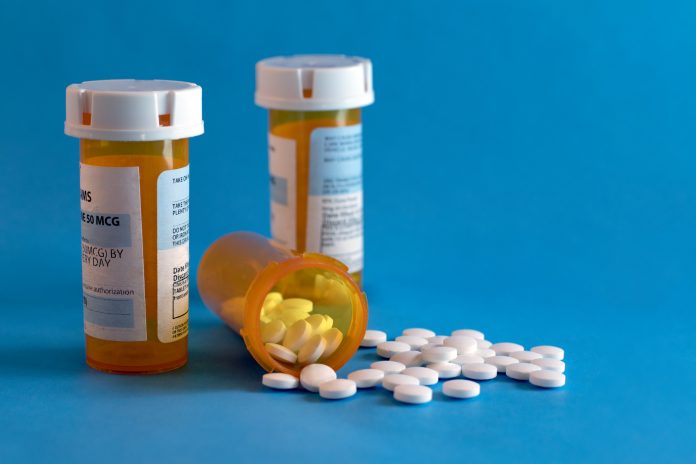Dr Lakshmi Mahadevan describes a multi-level intervention program that is helping to offset the negative impacts of lack of access and social isolation by providing a pathway to reducing stigma, prevention, timely intervention and recovery from mental health challenges that was hitherto unavailable to rural Texans
Many individuals in rural America need mental health or substance use treatment. However, only a fraction seeks and receives appropriate treatment in a timely manner. Reasons for not seeking treatment mainly include stigma which in turn contribute to the increased morbidity and mortality associated with mental illness (Holder, Peterson, Stephens & Crandall, 2018). Further, the COVID-19 pandemic has wrought an increase in mental health concerns compounded by a continuing lack of access to appropriate care, stigma and loneliness due to social isolation or distancing.
Background: In the United States, suicide is the 10th leading cause of death and was responsible for more than 47,500 deaths in 2019 (Centers for Disease Control and Prevention, 2019) and one in every five adults’ lives with some form of mental illness (National Alliance on Mental Illness, 2019). Enter 2020, and the COVID-19 pandemic hits, affecting many people’s mental health and creating new barriers for people suffering from mental illness and substance use disorders.
Opioid epidemic
Rural America has been hard hit by the opioid epidemic with access to only 10% of opioid treatment resources (Benson & Aldrich, 2019). According to the Substance Abuse and Mental Health Service Administration’s 2020 data, over 71,000 18 years or older residents of rural counties reported having a mental illness in the past year. Over 38,000 residents living in completely rural counties reported a co-occurring substance use disorder with a serious substantial mental illness (defined as having a diagnosable mental, behavioural, or emotional disorder) over the past year.
The National Center for Injury Prevention and Control (CDC, 2017) reported the age-adjusted suicide rate per 100,000 in the rural United States was 19.17 while over 46 million suicide injury deaths occurred in non-metro areas. The 2018 “Life in Rural America” report based on a survey conducted for National Public Radio, the Robert Wood Johnson Foundation, and the Harvard T.H. Chan School of Public Health found that almost one-quarter of rural Americans (N=1300) (23%) say that drug addiction or abuse is the most urgent health problem currently facing their community, along with access to health care (11%). In addition, most rural Americans (90%) said the problem of people being addicted to opioids in their local community is a serious or very serious problem. Many rural Americans also viewed this problem as getting worse.
Drug-induced suicide
Based on CDC data (1999 to 2017) a total of 2,558 deaths occurred in non-metro counties in Texas that were attributed to drug-induced causes. Of these 317 occurred due to drug poisoning-related (overdose) suicide.
As of December 2018, 430 Health Professional Shortage Areas (HPSAs) have been designated in Texas as mental HPSAs. Only 34.53% of Texans’ mental health needs were met and an additional 585 practitioners would be required to remove the HPSA designations. In 2017, 161 rural counties were designated as Mental Health HPSAs.
Mental Health First Aid
Mental Health First Aid in Rural Texas: Beginning March 2020, Texas A&M AgriLife Extension Service (AgriLife Extension) launched the “Reducing Opioid Use and Misuse through Mental Health First Aid in Rural Texas” (MHFA_RTX) project funded through a Rural Health and Safety Education grant awarded by the United States Department of Agriculture. MHFA_RTX seeks to address the aforementioned rural disparities by utilising a multi-level intervention focused on:
- Raising awareness on opioid use and misuse and related at-risk behaviours in rural Texas Counties,
- Increasing mental health literacy of adults who interact with adults through Mental Health First Aid (MHFA) training,
- Providing harm reduction strategies and education in the form of opioid overdose reversal administration kits,
- Educating communities on how to develop broad-based community coalitions to address the complex community-specific nature of rural opioid use.
MHFA is an evidence-based training course that takes the fear and hesitation out of starting conversations about mental health and substance use problems. Essentially, MHFA_RTX teaches people to identify and address a potential mental illness, challenges, or substance use disorder among fellow rural citizens by implementing ALGEE safely and responsibly.
- Assess for risk of suicide or harm.
- Listen nonjudgmentally.
- Give reassurance and information.
- Encourage appropriate professional help.
- Encourage self-help and other support strategies.
Through MHFA_RTX, participants also receive an overview of local drug trends, Naloxone – an opioid overdose reversal kit and local and statewide mental health resources that allow them to provide “hope with facts” to peers, colleagues, or family members.
Specifically, Mental Health First Aiders reduce mental health access disparities by:
- Learning to recognise signs and symptoms of mental health challenges in people they work with or care about.
- Understanding that they are not diagnosing, but simply being cognizant of possible concern.
- Knowing that recovery from mental health challenges is possible and that the earlier someone seeks to help the better.
- Having an awareness that cost, stigma, access and fear can act as deterrents to someone seeking professional help.
- Knowing that timely MHFA can prevent situations such as suicidal thoughts, non-suicidal self-injury, psychotic episodes, substance use from becoming a crisis.
- Having knowledge of non-linear ALGEE – the first aid model that begins with the sentence: “I am concerned about you.”
- Having an awareness that their MHFA will begin individuals on a path to self-help, seeking professional help and recovery.
As of 2021, MHFA_RTX grant has trained 175 Texans to be Mental Health First Aiders. Of those trained, 87% indicated that their knowledge of mental health challenges, signs, and symptoms has improved. Additionally, over 70% of participants reported appreciation for the MHFA action plan and the potential for preventing, intervening and recovery for fellow rural citizens experiencing mental health challenges. Participant testimonial: “It really has changed my attitude 100%. I need to use ALGEE – listen MUCH more and be empathetic. I do and would do this for others …. why in the world would I not do this even more so for my own family? I am anxious to demonstrate these changes.”
Conclusion: The COVID pandemic has brought an increase in mental health concerns compounded by a continuing lack of access to appropriate care and loneliness due to social isolation or distancing. The USDA-NIFA funded, “Reducing Opioid Use and Misuse through Mental Health First Aid in Rural Texas” grant is focused on providing “hope with facts,” reducing stigma and promoting the sense of community by ensuring everyone that “we are not alone.” By effectively offsetting the negative impacts of lack of access and social isolation, the grant provides a pathway to prevention, timely intervention and recovery that was hitherto unavailable to rural Texans.
*Please note: This is a commercial profile











